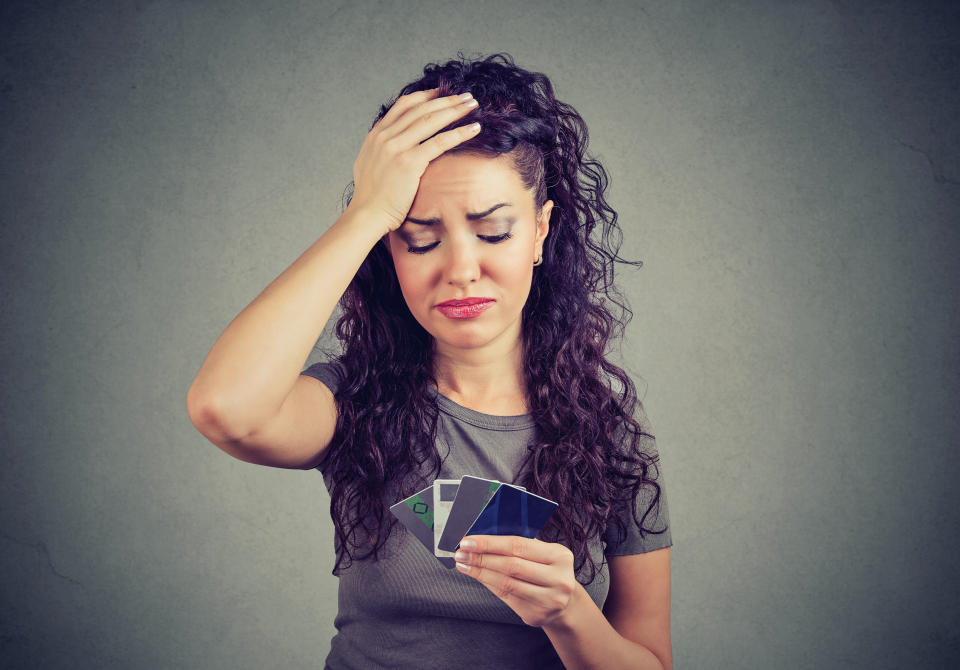Simple mobile phone setting that’ll halve your spending

As recently as December last year, many experts predicted that it would be a walk to a cashless society in Australia rather than a run.
However, with the Covid-19 pandemic, timelines have quickened and going cashless seems to be something we’ll arrive at sooner rather than later.
The move away from cash during Covid-19
Certainly, if we look at buy now pay later (BNPL) platform, Afterpay’s results in quarter three of the 2020 financial year, we see this trend. In the US alone, Afterpay reported that it saw $1 billion in U.S. sales and served 4.4 million customers for quarter three of 2020 which was a 238 percent increase over the same quarter in 2019.
But we’re not simply moving away from cash - we’re also moving away from traditional alternative payments.
That same timeline also saw a decline in both cash and credit card transactions as reported by both Visa and Illion Credit Agency.
With this move towards digitised payments, it’s important to understand the effect these types of non-cash payments have on our spending. Yes, we might feel safer because we’re not handling cash and are more protected from the Covid-19 virus, but we might be inadvertently causing our finances harm
How do we cause harm by moving away from cash?
Digitised payments hurt less, which means we spend more
One of the behaviours that researchers have monitored is the effect on our sensory system when we make payment for goods and services.
In a 2019 study called, “Cash, Card or Smartphone: The neural correlates of payment methods’, scientists examined whether our brain activity could be modulated by the method of payments used.
In their paper, the researchers acknowledged that for hundreds of years the use of coins and banknotes have engaged and stimulated our sensory system. What they discovered was a far greater brain activation in the insula or pain region of the brain when participants were shown payments with cash and coins.
On the contrary, far less brain activation was detected when the same individual was watching payment by a card or a smartphone.
In other words, the non-cash payment hurt less - and because it hurts less, we spend more.
And not a small amount more. In 2001, Drazen Prelec and Duncan Simester of MIT discovered shoppers spent up to 100 per cent more when they paid using their credit card instead of cash.
This means that sure, we might be protected from Covid-19 by changing our payment habits, but it’s our finances that are getting sick through us spending more.
Habits that will protect your finances
How you ensure that both you and your finances are kept healthy is to be mindful of the effect that changing your payment method makes. And to adapt your money habits as a result.
Sure, you might not switch back to cash but it’s figuring out how you can ensure that you’re feeling enough pain to limit your spending or you’re setting up barriers so that you’re mindfully spending.
This might be as simple as allowing your bank to send a pinging alert to your phone every time you spend so that your senses are activated.
Or maybe it’s organising your bank accounts, reducing your credit card limit or choosing to only use debit cards so that your spending is limited by the amount in your account.
Maybe it's writing down what you're spending - researchers have discovered that the art of writing down can change how you learn and respond. Or maybe it’s hiding excess cash and savings to another bank so that you’re not tempted to transfer the amount to your card.
It’s about setting up a system that both limits your spending as well as causes your senses to be activated.
The move to a cashless society, more than ever before, feels like it will be here sooner than we expect.
What we want to do is be mindful of the unexpected effects of non-cash payments on our spending and to adjust our behaviour to suit. That way both we and our finances will stay healthy regardless of what is going on in the world.
Melissa Browne is an ex-accountant, ex-financial-advisor and ex-work-till-she-drops. Today she’s all about financially empowering and educating women. Her latest book is Budgets Don’t Work but This Does or you can sign up to hear more from her at melissabrowne.courses
Want to hear Australian influencers reveal their best finance tips? Join the Broke Millennials Club on Facebook, and receive one hot tip per day in December.
And if you want 2021 to be your best (financial) year yet, follow Yahoo Finance on Facebook, LinkedIn, Instagram and Twitter. Subscribe to the free Fully Briefed daily newsletter here.

 Yahoo Finance
Yahoo Finance 